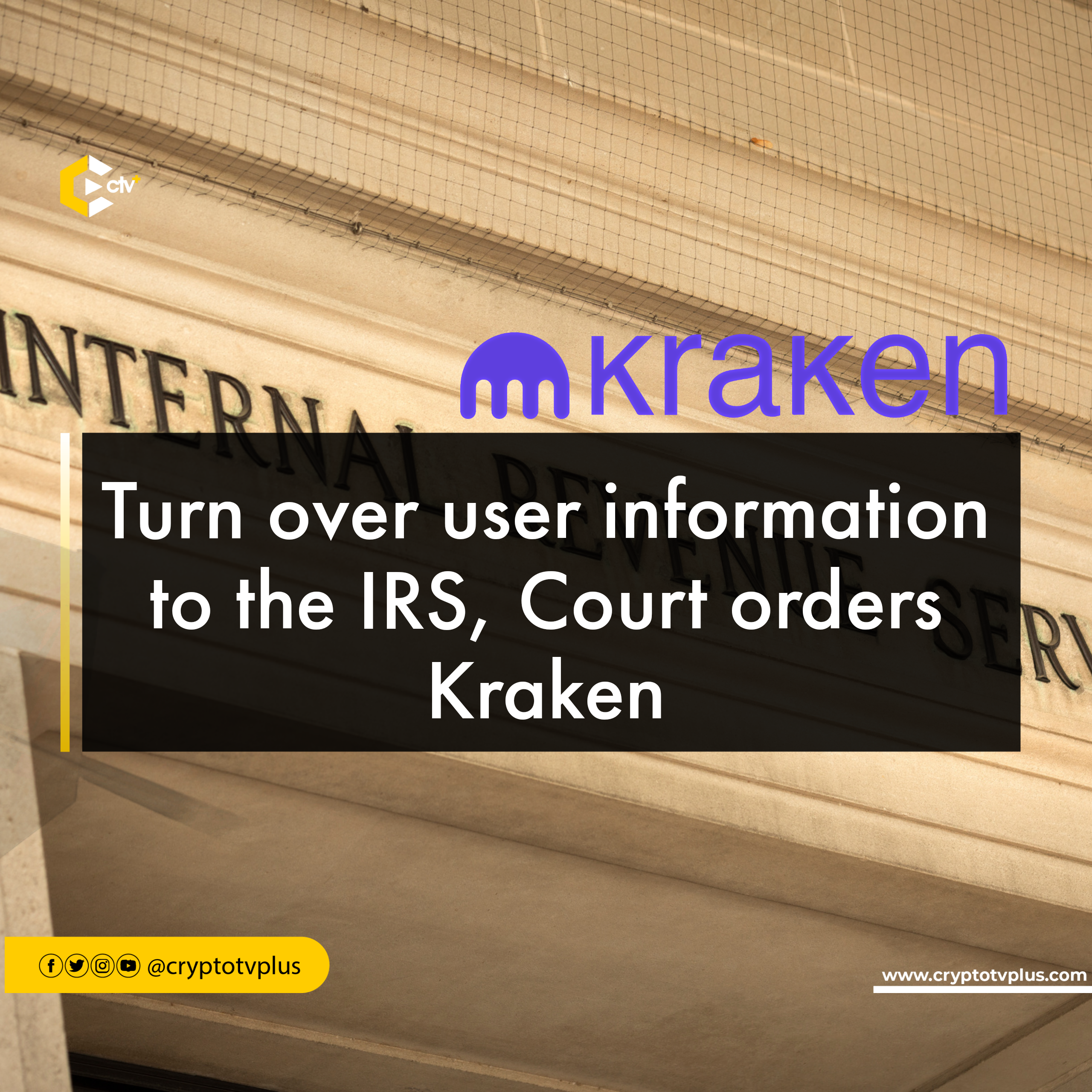News
Turn over user information to the IRS, Court orders Kraken

The United States Internal Revenue Service (IRS) has obtained a partial court order, requesting that Kraken, a major cryptocurrency exchange, provide crucial data about its users.
This case revolves around an IRS summons issued to Kraken in 2021. However, the firm chose to ignore it. Consequently, US authorities sought to enforce the summons, seeking access to information related to specific Kraken account holders.
The IRS is conducting an investigation into Kraken’s compliance with cryptocurrency tax regulations and suspects that some cryptocurrency users may be involved in tax evasi
Kraken, a digital currency exchange, provides users with different account levels and services. Higher-level accounts require additional identity verification. The background section of the report explains Kraken’s operations and the verification requirements for each account level.
The court case file emphasizes the IRS’s concerns about tax compliance risks related to virtual currencies. Government reports have highlighted the significant rates of underreported income from cryptocurrency transactions. The IRS has been actively identifying taxpayers involved in cryptocurrency transactions to ensure compliance with tax obligations.
According to the case file, the IRS has been unable to identify around 750 taxpayers out of the 13,000 customers of Coinbase. This group represents over $100 million in cryptocurrency proceeds. Kraken, however, disagrees with the IRS summons’ broad definition of “User,” as it would encompass a much larger number of Kraken accounts compared to a narrower threshold. The company argues that many users only engage in transactions involving small amounts and have no taxable gains, making their inclusion unnecessary.
Kraken User Privacy Concerns
In addition, Kraken has expressed concerns regarding data collection from users outside the United States and its compliance with international privacy regulations. The company argues that the summons is not specifically tailored and raises potential privacy concerns related to granting the IRS access to a substantial amount of private financial and personal data.
The court dismisses Kraken’s concerns, stating that the definition of “User” in the summons is not overly broad. The court argues that the IRS is not obligated to use the same John Doe class classification for every cryptocurrency summons. The government justifies the broad definition based on the investigation’s needs, lessons learned from the Coinbase case, the evolution of the crypto sector, and the distinctions between Kraken and Coinbase.
The government also rejects Kraken’s argument that users with no taxable events should be excluded from the summons. It argues that various cryptocurrency transactions, even those appearing as “buy and hold” activities, can still be considered taxable events.
The summons served against Kraken is part of the IRS’s broader Electronic Payment Systems Initiative, which aims to combat tax evasion involving virtual currencies.
Read also: UK Landmark Bill Recognizes Crypto as Regulated Activity
























